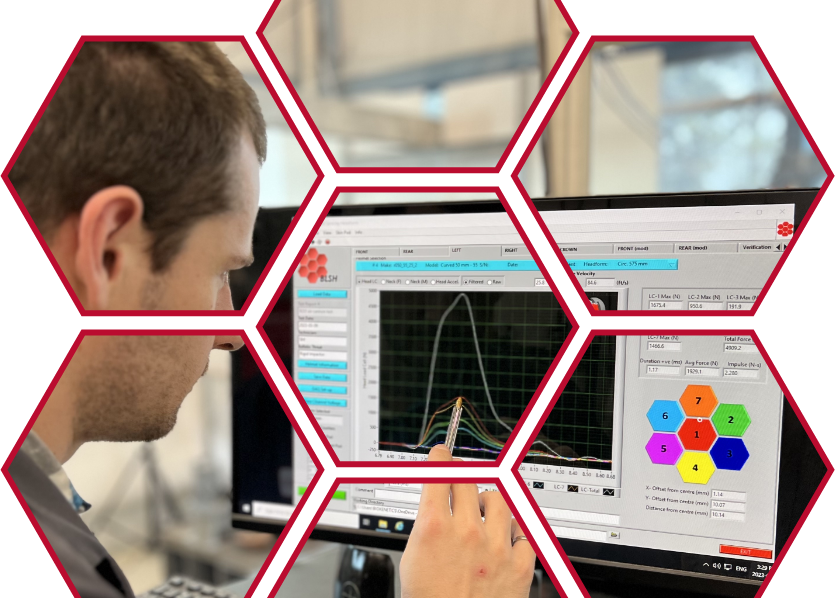
As the world of sports medicine and kinesiology continues to gain an increasing understanding of the profound effects blunt force trauma can have on the body, the importance of adequate safety gear and protection measures has become even more apparent. Sports safety research plays a pivotal role in understanding, mitigating, and preventing injuries that can occur during various sporting activities.
At Biokinetics, we understand the value of rigorous testing and the benefit that accurate results offer when it comes to protecting athletes at all levels. We’re proud to partner with manufacturers across North America to offer comprehensive blunt force trauma testing that informs the development of industry-leading solutions.
Below, we’ll take a closer look at a few of the core elements examined during sports safety testing. Read on to learn more!
Biomechanics
Biomechanics is the study of human movement, and in this context, specifically the examination of how the human body interacts with equipment and external variables while engaged in sports. Biomechanical studies analyze movement patterns, joint stressors, and the effect of impact forces to determine how participants normatively react to an activity, as well as how differing variables may lead to strain or injury either immediately or in the long term. Data garnered during biomechanical testing is crucial for a better understanding of sports performance and how external variables like footwear and gear can be used to keep everyone safe in action.
Equipment Safety and Design
The safety and design of sports equipment represent another critical facet examined by testers to align with existing (and evolving) standards. Researchers delve into the composition, functionality, and effectiveness of protective gear like helmets, pads, and other clothing to ensure that each element is up to the relevant standards and that new data is incorporated into the development and design of emerging products for optimal results.
The evolution of safety gear, whether it be advancements in helmet technology or creating lighter padding that keeps players agile and protected, is crucial for performance and long-term risk mitigation.
Injury Epidemiology
Injury epidemiology, or in more simplistic terms, the study of how and why injuries occur, is key when it comes to establishing proven parameters for sports safety. Sport and athletic-oriented analysis focuses on the frequency, distribution, and causes of injuries among athletes and allows researchers to identify common causes of harm, as well as the factors that cause them. The data gathered from such studies is key for developing targeted prevention studies for commonplace injuries like concussions and severe injuries like traumatic brain injuries, spinal cord injuries, whiplash, and more.
Medical and Emergency Preparedness
While safety equipment can help avoid or reduce the risk of serious injuries, it is crucial for sports safety practices to have dedicated treatment plans and protocols in place when injuries do occur. Testing allows professionals and athletes themselves better to understand the inherent risks of specific kinds of injuries and develop relevant treatment plans for both on-field intervention and post-injury rehabilitation.
Behavioural and Psychological Factors
Finally, sports safety testing isn’t just about physical factors and equipment. Player psychology and behaviour play a significant role in injury mitigation and the safety of their fellow athletes. Studies allow for player education and better coaching practices that avoid psychological stressors and fatigue points that can make athletes more susceptible to harm. As is the case with safety methodology across all industries, human understanding and adaptation is necessary to avoid preventable injuries and to create a safer foundation moving forward.
Creating a Safer Playing Field For All
Biokinetics is proud to offer trusted testing facilities and practices to help create a foundation of safety and knowledge when it comes to assessing sports equipment and establishing accurate safety metrics. Mitigating the risk of bodily harm during sporting activity remains a dedicated area of expertise for our team, and we are pleased to offer comprehensive helmet testing services and more through our risk and performance analyses.
Learn more about our helmet assessment testing capabilities by contacting us today.

